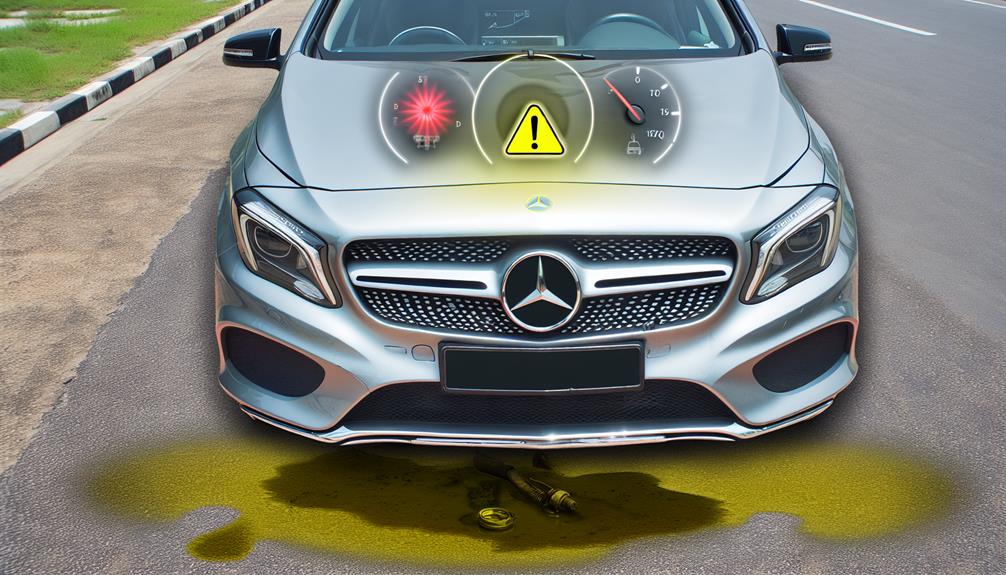When it comes to dependability between Volvo and Mercedes, Volvo takes the lead. Volvo excels in safety features, long-term value retention, and reliability, boasting higher resale values and consistently meeting industry testing standards. Volvo's maintenance costs are generally lower than Mercedes due to affordable parts availability, potentially saving you money over time. Volvo cars are known for lasting between 200,000 to 250,000 miles, indicating their reliability and longevity over Mercedes. Opting for Volvo guarantees a reliable choice with superior safety features and consumer ratings that vouch for its long-term reliability and durability.
Key Takeaways
- Volvo surpasses Mercedes-Benz in reliability ratings.
- Volvo excels in safety features and long-term value retention.
- Volvo demonstrates higher resale values over time.
- Volvo vehicles showcase durability and longevity.
- Volvo leads in consumer ratings for reliability and satisfaction.
Brand Reputation and Recognition
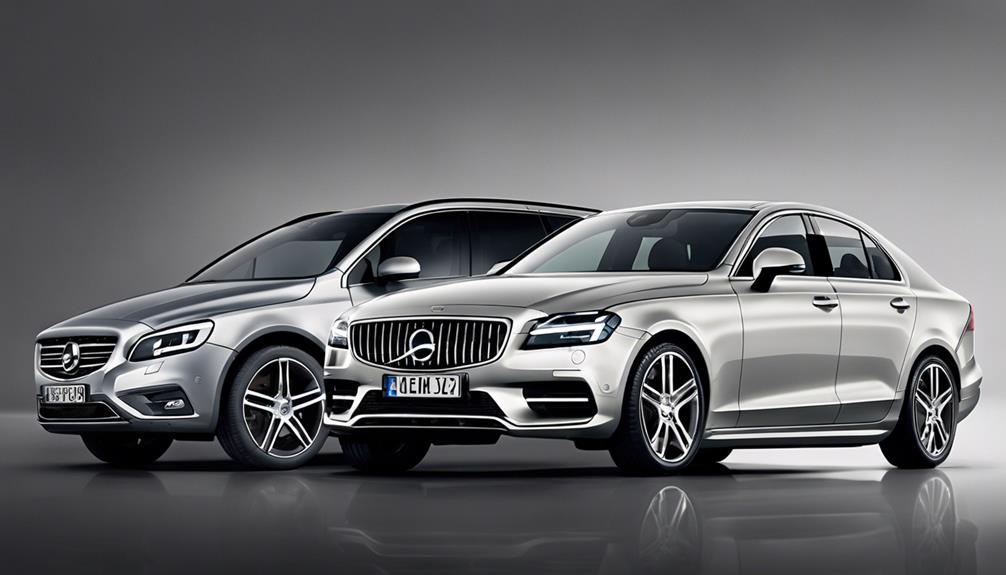
When assessing brand reputation and recognition between Volvo and Mercedes-Benz, it's clear that Mercedes-Benz stands out prominently in the automotive industry for its exceptional reliability, luxury, and styling, as demonstrated by prestigious awards such as the 2022 J.D. Power Performance Award and the 2022 Edmunds Top Rated Awards. Mercedes-Benz has solidified its position as a leader in the automotive market, consistently exceeding customer expectations and garnering recognition for its outstanding performance. The brand reputation of Mercedes-Benz is synonymous with excellence, drawing admiration and loyalty from consumers worldwide.
On the contrary, Volvo's brand reputation and awards fall short in comparison to Mercedes-Benz. While Volvo produces quality vehicles, the brand lacks the same level of recognition and accolades as Mercedes-Benz. Remarkably, Volvo didn't receive any awards from Edmunds or make the list for the 2022 J.D. Power Performance Award, further highlighting the difference in brand recognition between the two automakers. In the world of brand reputation and awards, Mercedes-Benz unquestionably outshines Volvo, solidifying its status as a premier automotive brand.
Performance and Efficiency Metrics
Comparing the performance and efficiency metrics of the Volvo XC90 and Mercedes GLE models reveals distinct power and fuel efficiency differences between the two luxury SUVs.
The Volvo XC90 B5 AWD offers 247 hp, slightly less than the Mercedes GLE 350 which provides 255 hp. However, the Volvo XC90 B6 AWD surpasses the Mercedes GLE 450 with 295 hp compared to 362 hp, showcasing enhanced performance. The Volvo XC90 T8 eAWD stands out with an impressive 455 hp and 63 MPGe, demonstrating a remarkable blend of power and efficiency.
Concerning fuel efficiency, the Mercedes GLE 350 achieves 19/27 MPG, whereas the Volvo XC90 B5 AWD delivers better efficiency at 22/28 MPG. Conversely, the Mercedes GLE 450 provides 20/26 MPG, slightly lower than the Volvo XC90 B6 AWD, which strikes a good balance between power and efficiency.
These metrics highlight the strengths of both Volvo and Mercedes-Benz regarding performance and efficiency.
Quality and Reliability Assessments
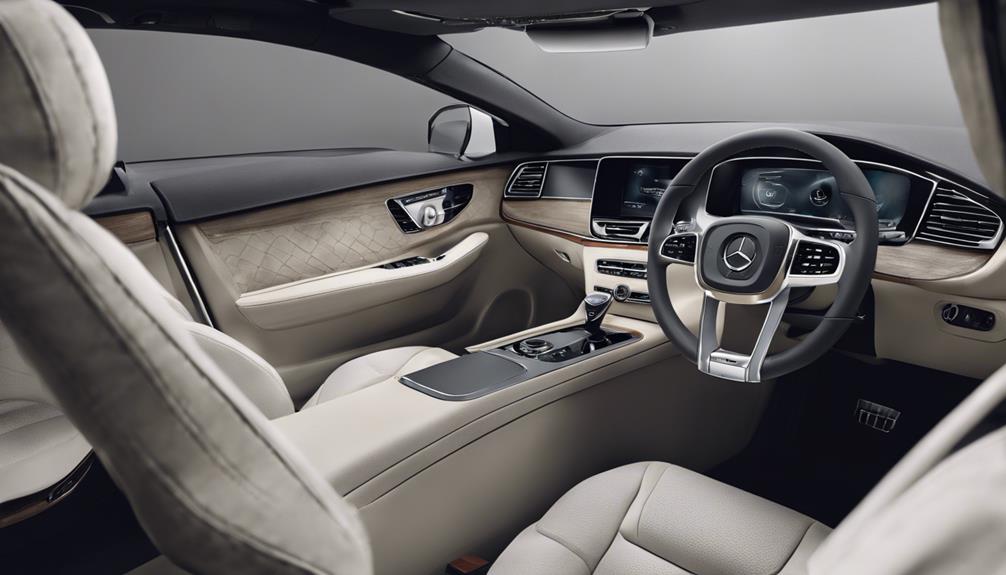
When evaluating quality and reliability assessments between Volvo and Mercedes, it's important to take into account testing reliability standards, performance under stress, and long-term durability comparisons.
These factors play a significant role in determining the overall dependability and trustworthiness of each vehicle. By examining these aspects closely, you can gain valuable insights into how Volvo and Mercedes perform in real-world scenarios and make informed decisions based on their quality and reliability.
Testing Reliability Standards
In reliability assessments, Volvo consistently outperforms Mercedes in safety features and long-term value retention, establishing its superiority in quality and reliability standards. When it comes to testing reliability standards, consider the following:
- Safety Features Evaluation:
- Volvo excels in safety tests, with advanced driver-assist technologies that enhance overall vehicle safety.
- Long-Term Value Retention Assessment:
- Volvo vehicles have shown higher resale values over time, indicating their durability and long-term reliability.
- Industry Testing Standards Comparison:
- Volvo has consistently met or exceeded industry testing standards, ensuring their vehicles are reliable and safe choices for consumers.
Performance Under Stress
Volvo consistently demonstrates superior reliability and quality under stress conditions in comparison to Mercedes-Benz, as evidenced by various assessments.
When subjected to demanding situations, Volvo vehicles have proven to maintain their quality and reliability better than Mercedes-Benz counterparts.
Quality assessments specifically focused on stress scenarios have consistently favored Volvo, highlighting its durability and reliability in challenging conditions.
Volvo's track record for excelling in reliability and quality under stress has been repeatedly validated through rigorous evaluations.
In numerous assessments, Volvo has showcased its ability to outperform Mercedes-Benz when it comes to withstanding stress conditions, making it a more dependable choice for those seeking quality and reliability in demanding driving situations.
Long-Term Durability Comparison
Demonstrating exceptional long-term durability through quality and reliability assessments, Volvo and Mercedes vehicles exhibit impressive engineering and performance capabilities. When comparing the long-term durability of Volvo and Mercedes-Benz, here are some key points to ponder:
- Volvo vehicles are renowned for lasting between 200,000 to 250,000 miles, showcasing high-quality materials and robust construction.
- Mercedes cars have a durability range of 150,000 to 200,000 miles, indicating solid engineering and reliable performance over time.
- Both Volvo and Mercedes have top safety ratings in crash tests, further solidifying their reputation for quality and reliability.
These factors highlight the reliability and durability of both Volvo and Mercedes-Benz vehicles, providing peace of mind for long-term ownership.
Safety Features and Technology Offerings
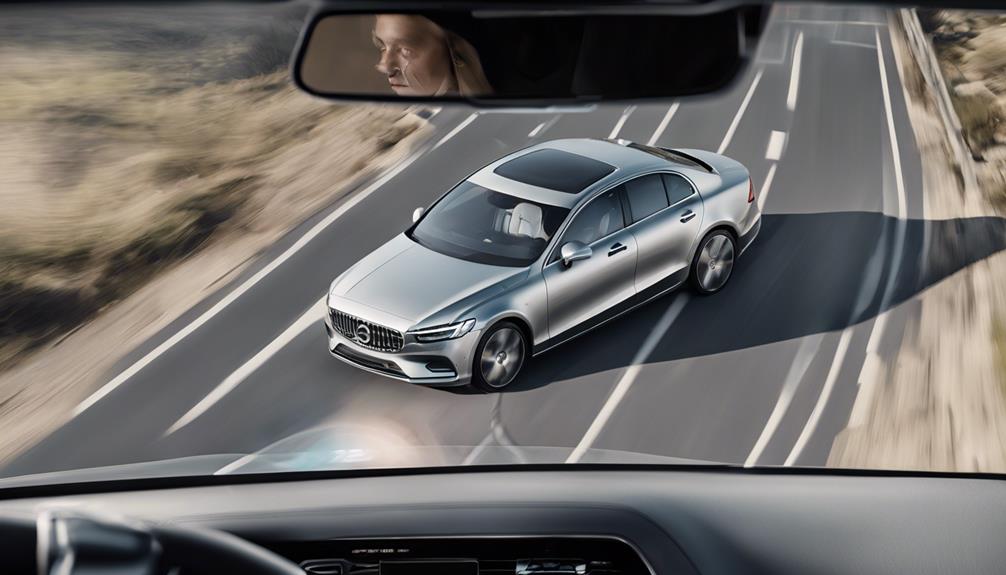
When assessing safety features and technology offerings between Volvo and Mercedes-Benz, it's crucial to compare their innovative systems and integration methods.
Volvo highlights advancements like City Safety and Oncoming Lane Mitigation, emphasizing accident prevention and protection.
In contrast, Mercedes-Benz integrates technologies such as Active Brake Assist and Active Distance Assist to enhance driver assistance and collision avoidance capabilities.
Safety Innovations Comparison
Comparing the safety innovations between Volvo and Mercedes-Benz reveals a rich array of advanced features and technologies aimed at enhancing driver and passenger protection.
- Volvo's City Safety includes automatic emergency braking and pedestrian detection.
- Mercedes-Benz integrates Active Brake Assist to prevent collisions by applying brakes when necessary.
- Volvo offers Pilot Assist for semi-autonomous driving, aiding with steering, acceleration, and braking on well-marked roads.
Both brands excel in collision prevention technologies, prioritizing driver assistance systems to enhance safety on the road. Volvo's Run-off Road Mitigation and Mercedes-Benz's PRE-SAFE system further demonstrate their commitment to innovative safety features designed to keep occupants safe in various driving scenarios.
Technology Integration Assessment
Volvo and Mercedes-Benz exhibit distinct approaches in their integration of safety features and technology offerings, setting the groundwork for a thorough assessment in enhancing driver and passenger safety.
Volvo's focus on safety innovations like City Safety, Pilot Assist, and Run-off Road Mitigation enhances protection, while emphasizing intuitive interfaces such as Sensus touchscreen and voice control for a seamless driving experience.
On the other hand, Mercedes-Benz integrates advanced driver assistance systems like Active Brake Assist, Blind Spot Assist, and Lane Keeping Assist for enhanced safety on the road. Mercedes-Benz features the innovative MBUX system with AI-powered voice command and augmented reality navigation, offering advanced connectivity options.
Both brands provide a range of safety features and technology integrations, yet Volvo's emphasis on safety innovations and intuitive interfaces sets it apart in technology integration for enhanced reliability.
Maintenance and Repair Costs Comparison
For those looking for cost-effective maintenance and repair options between Volvo and Mercedes, the annual repair cost of $769 for Volvo versus $908 for Mercedes highlights Volvo's advantage in affordability and reliability. When comparing maintenance and repair costs between Volvo and Mercedes, it's evident that Volvo provides a more budget-friendly option. Here's why:
- Lower Annual Repair Cost: Volvo's $769 annual repair cost is significantly lower than Mercedes' $908, indicating potential savings in maintenance expenses over time.
- Extended Longevity: Volvo cars are known to last between 200,000 to 250,000 miles, showcasing their durability and potentially reducing the frequency of major repairs compared to Mercedes models.
- Reliability and Affordability: Opting for Volvo over Mercedes can lead to significant savings in maintenance and repair costs, aligning with Volvo's reputation for reliability and lower repair expenses.
Considering these factors, Volvo emerges as a more cost-effective choice for individuals seeking a reliable and affordable luxury SUV option over Mercedes-Benz.
Durability and Longevity Analysis
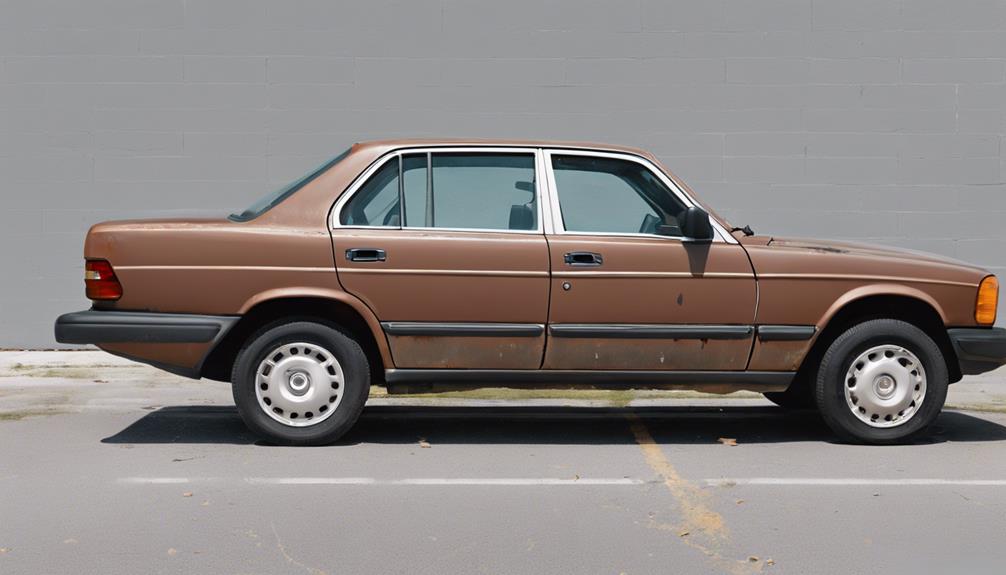
With a longevity range surpassing that of Mercedes, Volvo vehicles are renowned for their exceptional durability and extended lifespan. Volvo cars are known to last between 200,000 to 250,000 miles, showcasing their reliability and longevity. In comparison, Mercedes vehicles have a durability range of 150,000 to 200,000 miles, slightly lower than Volvo's impressive longevity. Both manufacturers produce solid cars, but Volvo's utilization of high-quality materials, such as strong frames and durable components, contributes considerably to their extended lifespan. Additionally, Volvo and Mercedes-Benz both excel in safety ratings, ensuring the durability and safety of their vehicles in various conditions. Below is a comparison table highlighting the durability and longevity analysis of Volvo and Mercedes:
| Aspect | Volvo | Mercedes |
|---|---|---|
| Longevity | 200,000 to 250,000 miles | 150,000 to 200,000 miles |
| Reliability | High-quality materials, strong frames | Solid construction, quality components |
| Safety | Top safety ratings in crash tests | Excellent safety features and technology |
Resale Value and Depreciation Rates
When examining resale value and depreciation rates between Volvo and Mercedes-Benz, it's clear that Mercedes-Benz consistently demonstrates higher retained value ratings in most comparisons. This is vital for individuals looking to invest in a vehicle that maintains its value over time. Here are some key points to ponder:
- Mercedes-Benz has higher retained value ratings in 6 out of 7 comparisons compared to Volvo, indicating a stronger resale value.
- Volvo, on the other hand, holds an advantage in depreciation over Mercedes-Benz, with lower used car starting prices in 4 out of 7 comparisons.
- Despite Volvo's lower starting prices, Mercedes-Benz models depreciate at a lower rate in all 7 comparisons, showcasing better value retention over time.
Consumer Ratings and Reviews
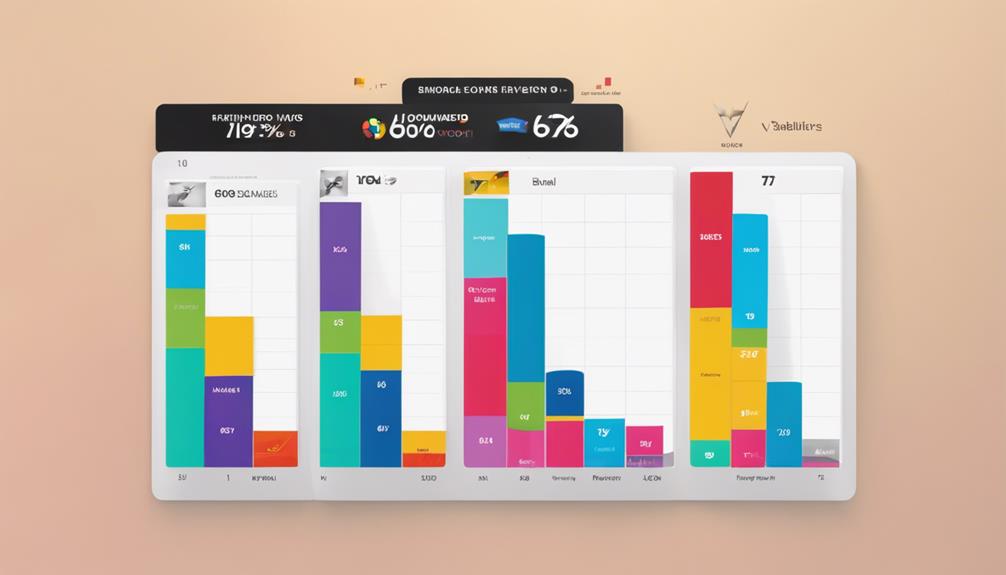
Volvo's consistent higher ratings in reliability compared to Mercedes-Benz in consumer reports indicate a notable advantage in long-term vehicle satisfaction. Volvo has built a reputation for producing durable and long-lasting vehicles, leading to better consumer ratings for reliability when compared to Mercedes-Benz. In J.D. Power's Vehicle Dependability Study, Volvo frequently surpasses Mercedes-Benz in terms of long-term reliability and owner satisfaction. Owners of Volvo vehicles often praise the brand for its reliability, noting fewer breakdowns and issues compared to Mercedes-Benz. Additionally, Volvo vehicles tend to have higher resale values than Mercedes-Benz models, highlighting the brand's stronger long-term reliability and customer satisfaction.
| Aspect | Volvo | Mercedes-Benz |
|---|---|---|
| Reliability | Consistently higher ratings | Lower ratings |
| Consumer Ratings | Better overall scores | Mixed reviews |
| Resale Values | Higher values | Lower values |
Final Verdict: Volvo Vs Mercedes
In reliability comparisons between Volvo and Mercedes-Benz, Volvo consistently emerges as the more dependable choice based on consumer ratings and long-term satisfaction metrics. When considering reliability, quality, safety, and resale value, Volvo proves to be the superior option.
- Reliability: Volvo leads in reliability ratings in 3 out of 5 comparisons against Mercedes-Benz, showcasing its commitment to producing reliable vehicles for consumers.
- Safety: Volvo surpasses Mercedes-Benz with safety features, ensuring that you and your loved ones are well-protected on the road.
- Resale Value: While Mercedes-Benz excels in retained value ratings in 6 out of 7 comparisons, Volvo holds its ground in terms of resale value, offering a reliable investment for the future.
Frequently Asked Questions
Is Volvo Better Than Mercedes?
When considering Volvo versus Mercedes, it's evident that Volvo emerges as a superior choice. Its higher reliability, safety features, and lower maintenance costs make it a more appealing option for those seeking long-lasting value in a vehicle.
Are Volvos More Reliable Than Bmw?
When comparing reliability, consider Volvo's track record. Owners often report fewer issues and repairs, showcasing Volvo's commitment to quality. This reputation is backed by studies placing Volvo above BMW. Consider these factors when making your decision.
Are Volvos the Most Reliable Cars?
When considering the most reliable cars, Volvo shines with its durable reputation, advanced safety features, and lower repair costs. Your choice of a Volvo reflects a commitment to longevity and quality in your driving experience.
Which Is the Safest Car Between Volvo and Mercedes?
When comparing Volvo and Mercedes with regard to safety, consider Volvo's emphasis on innovative safety features and crash test ratings alongside Mercedes' reputation for secure driving experiences. Both brands prioritize safety, offering top choices for a secure driving environment.
Conclusion
To summarize, when comparing Volvo and Mercedes in regard to reliability, both brands have their strengths and weaknesses.
Volvo excels in safety features and durability, while Mercedes stands out in performance and efficiency.
Ultimately, your choice between the two will depend on your specific priorities and preferences.
Consider factors like brand reputation, maintenance costs, and consumer reviews before deciding which brand is the best fit for you.









